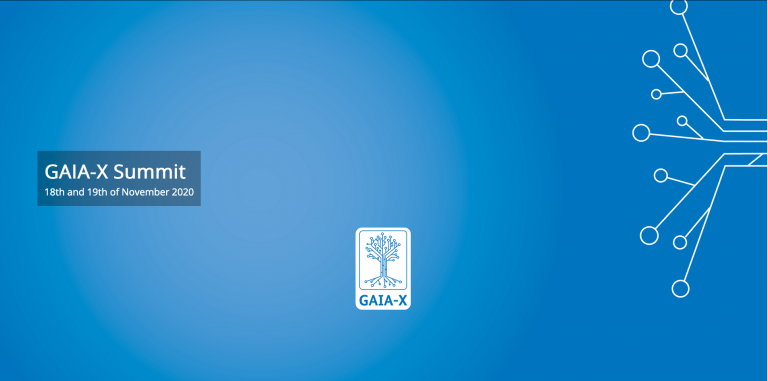
On November 18 and 19, 2020, a virtual Gaia-X-Summit took place. About 4000 participants from 180 organizations attended the online conference. On both days politicians and company representatives gave presentations. Most speakers came from Germany and France.
Federal Minister of Economics Peter Altmaier was represented by Thomas Jarzombeck, Member of the German Bundestag, who is the Federal Government Commissioner for Aerospace and Start-ups. He reported that in addition to France and Germany, many other European countries are now working with Gaia-X, alongside 300 companies. Some of them have created the Gaia-X-AISBL Foundation under Belgian law, which will operate the technical platform for Gaia-X, as well as the development of the non-profit standards (AISBL).
The issues remain privacy and sovereignty of European cloud users. Open source software will control the user hub. Use cases are to be implemented in 2021, which, together with data spaces for various sectors, are to be subsidized by the state with €200 million. National hubs are planned. Germany will provide 20 million € for the preparatory work.
Further lectures and panel discussions followed for individual sectors: Banking and insurance, mobility, healthcare, industry 4.0, electricity and aerospace.
On the second day, presentations by the Cloud Service Providers opened the Summit. In addition to T-Systems and OVH from Europe, Hyperscalers from the USA such as IBM, Amazon, Microsoft and Google, who are increasingly interested in Gaia-X, were also present. Parts of the press were irritated by the US participants, since the Cloud Act still prevents US companies from being certified according to the DSGVO1. The situation may be different for storage and processing without personal reference, such as IoT data without trade secrets: Water quality data in municipal utilities, which are also to be published as Open Data, or data from wind and solar power generation, which are required for a timely shutdown of coal-fired power plants in order to keep the grid frequency stable. See Redispatch 3.0.2
The next block of presentations included four “Federation Services” (Identity + Trust, Sovereign Data Exchanges, Federated Catalogue and Compliance) and a discussion about Gaia-X demonstrators. The Italian minister Paola Pisano showed with her contribution the growing interest in Gaia-X within the EU. All in all it has to be said that the summit did not focus so much on technical details but showed high commitment on the level of ministers and CEOs, which is a success for Gaia-X.
National hubs, the Gaia-X Association, policy rules and a roadmap concluded the event in the afternoon.
In summary, Gaia-X is a success even though the release is delayed until mid 2021:
– At a high level, politics and business stand behind the project
– Interest is very high, even among US hyperscalers with legal problems with the US Cloud Act
– The technical and organizational specifications are progressing, even if they take time in their complexity
It looks like Gaia-X is on the way to success without legal lockout, but only with specifications set by European states and companies.
Wolfgang Ksoll, Cloudical
